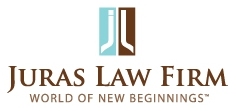Why hire an Immigration Attorney?
Because so much information is available online, you may feel that you can figure out what you need to do using Google and other online resources. Also, there is a misperception that immigration is about filling forms and submitting simple paperwork. While you can certainly gain knowledge of different visa and green card categories and forms to fill, keep in mind that there is lots of misinformation on the Internet, some information may be outdated or would not apply in your case. Immigration law is constantly changing. Even a minor regulatory or policy adjustment affects thousands of people. You may not be aware how the latest policy change, order or decision affects your case.
An experienced immigration attorney is up-to-date with all the government rules, policies, regulations, and various other local laws that may affect your case. His or her extensive experience and holistic view of even complex situations make him or her the best asset for you and can make a profound difference for you and your life.
We regularly advise clients who have already filed applications on their own with inadvertent mistakes that caused serious consequences. They may have filed a wrong form, missed a deadline, received a denial following a Request for Evidence that could have been easily addressed, or filed for visa, green card or naturalization when they were ineligible and face the threat of removal. One simple mistake on the form may be interpreted by the US Citizenship and Immigration Services as misrepresentation or fraud with serious consequences. Your one mistake can make the process more complex and can even prevent your from ever achieving what you were trying to apply on your own (e.g., children may reach certain age, deadline is missed, etc.).
An experienced immigration attorney can get you the result that sometimes you would not be able to get on your own. An experienced immigration attorney can save you money, time, frustration, and anguish in dealing with a much harder case on your own. You have someone on your side ready to answer your questions, guide you and help you in every step of sometimes long and complex immigration process.
An experienced immigration attorney evaluates your situation, determines your eligibility and the best process to take to achieve your immigration goal, knows what forms you will need, how to fill the forms accurately, what documents to submit and how to best present your case . Therefore, when you hire an experienced immigration attorney, you will have peace of mind that this life-changing immigration process will be achieved successfully without unnecessary delays. In addition, unlike document preparers and various online immigration service providers, immigration lawyers have a professional and ethical obligations to ensure that they
competently provide legal services to you.
If you would like to discuss how we can help you achieve your dream of legally living and working in the U.S., call an experienced immigration attorney at (480) 425-2009 or contact us through our website to schedule a consultation.
